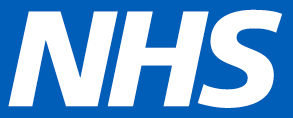Learn about the power of human factors in driving the reduction of outpatient backlogs in Maidstone and Tunbridge Wells NHS Trust.
Maidstone and Tunbridge Wells NHS Trust has undergone a transformative journey in the outpatient department. The focus has been on reducing backlogs and enhancing patient experience. Paying attention to human factors has been pivotal to the success of this endeavour.
Can you share an overview of the work?
The outpatient transformation initiative centred around three key work streams. Firstly, the team prioritised getting the basics right by addressing clinic and room utilisation. Simultaneously, a digital workstream focused on enhancing the patient portal, while the third workstream concentrated on pathway transformation, collaborating with clinical teams to streamline processes.
How did the pandemic affect the work?
The onset of the COVID-19 pandemic prompted a re-evaluation of outpatient services. There was a recognised need for innovation in outpatient settings, drawing learning from other service redesigns that took place because of the pandemic allowed us to innovate and sparked a motivation to reimagine services in areas that had remained unchanged for decades.
What were the key principles you held at the start of the work?
We wanted to ensure we adopted a patient-centred approach. Holding that in mind enabled us to understand the impact of communication on patient flow. Good and timely communication reduced the risk of DNA (did not attend) rates and avoided appointment issues. We also introduced electronic consultations, video consultations, and the expansion of kiosks to improve accessibility.
We knew that collaboration with clinical teams was fundamental. We strongly hold the belief that the patient and clinician experience is not exclusive, if you’ve got happier clinicians in an outpatient setting, because they can see all the information they need, then their experience is a good one, the patient experience will automatically improve. The project team worked closely with clinical leads in various specialities to innovate outpatient pathways and overcome challenges in service delivery. Initiatives included nurse-led clinics in neurology, ‘straight-to-test’ clinics in orthopaedics, and triage calls for cancer patients in haematology. These efforts aimed to reduce unnecessary appointments enhancing efficiency and also patient experience.
We believed that the ideas and opportunities were out there. Outpatients has been an area of the hospital that has not changed much over the years but we believed it could. That was really our motivation, we’ve done so many innovative things in the NHS over the years, except for the way that we operate outpatients, we knew we could change that if we had the right people involved.
We wanted to be aspirational. We wanted to demonstrate to junior staff that anything is possible if you need it to be. Such as if we know a patient has cancer then we can get something within a day, or two days. When you show them that is possible for a couple of patients then they really do not accept multiple-week waits for any patient and then that drives the high standards and the delivery of the common purpose.
What were the human factors that enabled your success in reducing the backlogs?
Coalescing around a common purpose was key. The success of the initiative is attributed to a team of innovative, ambitious, like-minded, and enthusiastic individuals driven to improve patient experiences. The drive to improve patient experiences being the truly shared common purpose held by each team member.
Learn from what’s come before. We spent time, learning from and, adopting methodologies from successful cancer service transformations and translating these wherever possible to the outpatient context.
Listen to your feedback loops and resource them well. Stakeholder engagement played a crucial role in the transformation process. Collaboration with clinical teams, utilisation of patient feedback, and the appointment of a dedicated patient experience lead were essential elements in understanding and improving the patient journey.
Be open to new ways of collaborating. Seeking alternative and innovative ways to engage with different demographics, drive innovation and circumvent the red tape means that you can gather insights that will make a real difference in harnessing meaningful insights.
Invest time in fostering and nurturing relationships. Communication and building positive relationships with clinical teams proved critical in overcoming challenges. The team's focus on collaboration, face-to-face meetings, and shadowing clinical leads facilitated a better understanding of challenges and opportunities within each speciality.
Dedicated and supportive leadership can drive innovation. Especially when those leaders create a culture that allows learning and experimentation, this creates the conditions for new solutions to long-standing challenges to emerge. Whilst Senior and Executive endorsement throughout the project ensured that the work continued to be prioritised and kept high on the agenda.
Specialist resource ensures pragmatic solutions and leverage for change. The outpatient directorate within the hospital provided a focused approach to the challenges faced as did the engagement of the outpatient clinical lead. These roles supported the department in making meaningful connections and relationships across specialities. The appointment of a nurse to support the rollout of new pathways displayed a commitment to see the work through and supported overcoming implementation challenges.
Maintaining staff morale matters the most. The team implemented daily patient tracking list meetings to provide structure and focus for staff, acknowledging their efforts and celebrating successes. The importance of consistent messaging, adopting a ‘can do’ attitude and recognising the impact of individual and team contributions was significant.
Share the story. Ensuring that impact and key messages around success and the realisation of reaching targets and milestones were communicated to staff in relatable ways meant motivation and staff morale was high.
How would you summarise the learning from this work?
The success of reducing outpatient backlogs at the Maidstone and Tunbridge Wells NHS Trust was rooted in a multifaceted approach. By addressing the basics, embracing digital solutions, transforming pathways, collaborating with clinical teams, and fostering strong leadership, the team has achieved meaningful improvements in patient care and experience. This work exemplifies the pivotal role that human factors play in driving successful healthcare transformations.
Want to know more?
Then please email:



